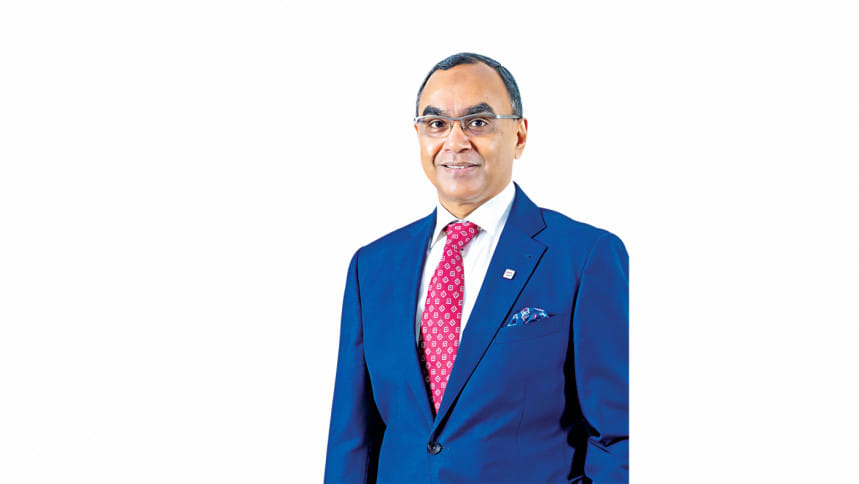Digitise operations to reach CMSMEs

Syed Mahbubur Rahman, Managing Director & CEO, Mutual Trust Bank
MTB has consistently served as a trusted partner for SMEs nationwide since its inception. Our strong compliance with regulatory directives for CMSMEs reflects our commitment to developing these sectors while enhancing financial inclusiveness in the country. We offer market-competitive solutions to Surplus Business Units (SBUs) and Deficit Business Units (DBUs) within the CMSME sector, ensuring comprehensive support in all possible ways. Our diverse product range simplifies business transactions and provides extensive credit facilities to meet both working capital and fixed asset requirements through our extensive physical and digital distribution channels.
To ensure smooth financial inclusivity, we have established numerous branches, sub-branches, and agent outlets across the country, targeting rural and hard-to-reach areas. Additionally, we offer various innovative, customer-centric digital solutions, enabling access to financial services from any location in the country. Furthermore, we partner with different fintech and agritech companies to reach remotely located SMEs through an embedded financing programme.
There are millions of CMSMEs nationwide, and significant numbers are still untapped. It is very difficult to reach remotely located CMSMEs solely through physical expansion. In addition to the classical business model, we need to focus on digitising operations to reach millions of CMSMEs in the fastest and most efficient way. We also need to address the stakeholders related to the value chain of the business to bring efficiency and competitiveness. Partnering with different fintech and other partners for embedded financing is also a solution. MTB has been taking various measures to build digital platforms to support CMSMEs across the country and paying attention to supply chain financing programmes to extend better support to SMEs.
The Government of Bangladesh has always extended support to promote SMEs in Bangladesh. Bangladesh Bank has also been tirelessly formulating various policy supports and financing packages for SMEs over the years. SMEs are vulnerable segments with numerous limitations and challenges. I believe the definition of SMEs needs reviewing, with greater attention given to cottage, micro, and small enterprises. SMEs also need to compete on a level playing field, and large enterprises should focus more on high-technology-based innovative industrial sectors. Therefore, the government could review the customised tax, duty, and VAT structures for SMEs to foster their growth. There should be an integrated mechanism to restrict large enterprises from entering into products/services typically handled by SMEs. Instead, large enterprises could serve as marketing powerhouses to promote SME products nationwide. Obtaining regulatory licenses for SMEs remains expensive and complex. The government could simplify this process to support SMEs effectively.
Access to finance for all SMEs remains a challenge, although it's less difficult than it was 10 to 15 years ago. However, obtaining finance alone isn't enough to support SMEs. They still lack financial literacy, technology-driven production, necessary skill sets, suitable marketplaces to showcase their products, and successors to take over small-sized businesses. Therefore, we need to focus on expanding non-financial services to enhance capacity, introduce incubation programmes for SMEs, establish common facility structures for cluster benefits in the long term, and implement long-term cluster development programmes by assigning specific clusters to particular banks. Partnering with different fintech/agritech firms to scale up customer onboarding is also crucial for boosting the SME sector in Bangladesh.

 For all latest news, follow The Daily Star's Google News channel.
For all latest news, follow The Daily Star's Google News channel. 



Comments